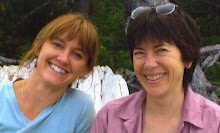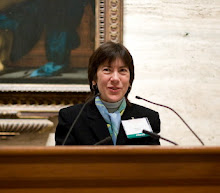
Howard Zinn concluded his 1994 lecture at Michigan Tech with an expression of optimism that I did not expect, especially as it came right after his description of the shameful treatment of Native Americans in U.S. history, and after he’d stressed the ways factual omissions distort our understanding of history. He closed his talk by saying:
“Unless we begin … thinking about other points of view and enlarging the scope of our understanding, we’re just going to repeat history as it was. My hope is that we are beginning to learn, that people are beginning to think in different ways, and that maybe the next century will be different.”
Then he opened the floor to questions.
This January, after Zinn passed away, I listened to his lecture on an old audiocassette tape. In more than 15 years I’d forgotten much of what Zinn had said, and I’d also forgotten about the Q&A after the talk. So it was with great surprise, as I listened to this part of the tape, that I heard a familiar voice – my own – ask Zinn a question.
“You ended this on an optimistic note,” I said. “What makes you optimistic?”
Zinn paused, and must have had a look on his face, since the audience laughed a little – and then he laughed a little. He might have picked up a slightly incredulous tone in my voice when I asked the question, because he began his answer with:
“Behind that is the thought, ‘How can you be so ridiculously optimistic, given what is happening in the world?’ I’m drawing on my age and experience. We like to do this, we in my position.”
He chuckled again, then continued:
“I’ve lived through situations where things seemed hopeless and where people didn’t seem to have a chance to do anything and yet they did something. That is, going to live in the South when it looked in the mid-1950s as if nothing was going to happen here and then to see a movement spring up and to see an amazing development, and to see suddenly hundreds of thousands of people in action, millions of people becoming aware of what they did, and to see, really, changes take place in a very short time in the South. Obviously not enough. Changes are never enough – it was certainly not enough.
“But yes, real changes take place. To see people who did not seem to have any power at all suddenly develop power, power that comes out of their organization, their sacrifice, their commitment to one another. Same thing with going through the anti-war movement and seeing the feeling of hopelessness at the beginning of the escalation of the war in Vietnam. I mean, how in the world can you affect the decision-making of this powerful country, how can a handful of protestors – I mean, in spring of 1965 we had our first protest meeting against the Vietnam War on the Boston Common. There were a hundred people there, at this anti-war meeting. I remember I was one of the speakers, Herbert Marcuse was one of the speakers, and a hundred people were there, in the spring of ’65. In the fall of ’69, there was another anti-war meeting on the Boston Common and a hundred thousand people were there. In a few years, an anti-war movement had developed all through the country, embracing every section of the population. GIs were coming back from Vietnam, angry at the government, wanting the war to stop, forming an organization, Vietnam Veterans Against the War. Throwing their medals over a fence in protest.
“Sure, we’re not in a great state, but the fact is that people have a capacity to [change things]. Out of what seems like nothing, and powerlessness … the things that they do which are small and isolated and don’t seem to have any effect – at a certain point in history these things begin to come together and you have a great movement and things begin to change.
“It sort of gives me hope that that possibility exists. And I guess I believe that people basically have good common sense and good values. I don’t really believe that people are fundamentally selfish or people are fundamentally, inherently racist or people are fundamentally mean and violent. I believe they are made so by what is fed to them day after day. But I think that at certain points in history, that common sense asserts itself.
“I go around the country, and I speak in different parts of the country, and I speak in places [about which] my friends in Cambridge, Massachusetts, would say: ‘What? You’ve speaking in Texas City, Texas? Is there anybody there who will listen to you?’ Maybe they’ll say this about the Upper Peninsula! ‘Really? Are there people in the Upper Peninsula who care what’s going on?’ …. But there are people all over this country, no matter how small is the town that you go in, anywhere in this country, there are people who care: care about children, care about war, care about poverty.
“I’m convinced that you can’t judge the possibilities in a situation by looking at it at any one point and seeing silence or inaction, and then deciding, well, this is the way it’s always going to be. Surprising things take place. Well, we’ve seen it happen in Eastern Europe, right? Who expected suddenly the rise of great movements of people in Eastern Europe, and governments [to] topple and systems [to] change? Surprises take place in history, and we’re surprised only because we’ve not had the faith that the common sense of people and the good instincts of people and the small acts of people will at certain points come together and have an effect. So I meet a lot of very good people all over the country, and that’s what makes me hopeful.”
Thank you, Howard Zinn, and thanks again to all those who helped bring him to Houghton in 1994. May we continue to live in surprising times.



